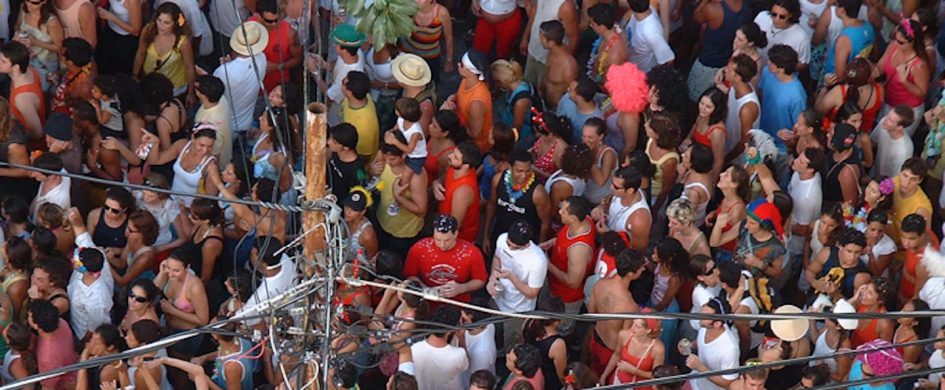People
The activities of the Centre are coordinated by the Director. In consultation with the Steering Committee, she is responsible for developing strategic initiatives and priorities.
Steering Committee
Dr Margarita Palacios (CILAVS Director from August 2023) is Reader in Social Theory and Psychosocial Studies. Her research currently focused on the understanding of the intersections between state violence, sexuality, nationalism and subjectivity in the context of post-conflict societies and also in the context of stable democracies. More recently she has moved towards questions about aesthetics and the political, and forms of representing violence without reproducing it.
Prof Luciana Martins (CILAVS Co-Director, 2020-23, CILAVS Director, 2007-2010, 2011-14, Co-Director 2015-2016) is Professor of Latin American Visual Cultures. She has published on the visual culture of tropicality, geographical thought, photography and documentary film, world cities and modernity, and digital art history. She has worked collaboratively with key institutions in the heritage sector, including the British Museum, Royal Botanic Gardens Kew and the Victoria and Albert Museum. She held a Leverhulme Research Fellowship for her project on ‘Drawing together: the visual archive of expeditionary fieldwork’ (2016-2018) and has recently led the project on ‘Digital repatriation of biocultural collections: connecting scientific and indigenous communities of knowledge in Amazonia‘, funded by a British Academy Knowledge Frontiers grant (2019-21).
Prof Carmen Fracchia (CILAVS Co-Director, 2020-23, CILAVS director, 2010-2011) is Professor in Hispanic Art History. Her major research areas are the visual representation of ‘minorities’; race, religion, and the interface between art and the history of science. She is currently working on a research project centred on the visual representation of slave subjectivity in Imperial Spain.
Dr Mari Paz Balibrea (CILAVS Director, 2016-2020) is Reader in Modern Spanish Literature and Cultural Studies. Her broad intellectual preoccupation is with the constitution and development of Spain as a modern nation, and with the meaning of modernity as referring to the country, which she investigates through the role that culture plays in them. While originally trained in literature, her research is highly interdisciplinary. Her publications include, in addition to literature, the study of philosophy, film, advertising, sports and urban spaces and have focused on questions of exile, political transition, citizenship and neoliberalism.
Prof Alejandro Colás is a Professor in International Relations and directs the MSc in International Security and Global Governance in the Politics Department at Birkbeck. He is author of International Civil Society: Social Movements and World Politics and Empire, both published by Polity Press. Alex writes on questions of internationalism, imperialism, food politics, piracy and the sea.
Dr Jasmine Gideon is a Senior Lecturer in Development Studies. Her research focuses on two key areas – gender and social policy in Latin America and health and well being among Latin Americans in the UK, with a particular focus on the Chilean exile community. She is the author of Gender, Globalization and Health in a Latin American Context (Palgrave Macmillan, 2014) and the co-editor of Migration, Health and Inequality (Zed Press, 2013).
Prof Oscar Guardiola-Rivera is a Professor in Law. His interests are in the theory and history of human rights & popular constitutionalism in comparative perspective; Post-human rights;The relationship between writing, history, and politics; Latin American history and literature; Phenomenology: Hegelian, Sartrean & Fanonian perspectives; Slavery, anti-slavery, liberties & commons; Cognitive science & philosophy; Law & social theory and anthropology; Economics and post-development.
Prof John Kraniauskas is Emeritus Professor of Latin American Studies. Particularly interested in relations between state and cultural forms, he is currently working on transcultural and subaltern studies; crime form and the state in Mexico; and Eva Perón and the populist state.
Dr Mara Polgovsky Ezcurra is a Lecturer in Contemporary Art. Her research focuses on contemporary Latin American Art and Intellectual History, with a particular emphasis on the politics of aesthetics and on the study of varying notions of life, presence, interactivity, and agency in artistic practice, including live, performance, ecological, cybernetic, multispecies, and posthuman art. Her forthcoming publications include Touched Bodies: The Performative Turn in Latin American Art (Rutgers University Press, 2019), and the essay collection Marcos Kurtycz: Corporeality Unbound (Fauna-Jumex, 2018).
Dr Silvia Posocco is a Senior Lecturer in Psychosocial Studies. She is interested inTransnational Gender and Sexuality Studies and Theories; Social Anthropology, Social Theory and Cultural Analysis; Violence, Conflict and Genocide; Secrecy; Sociality; Subjectivity; Anthropology of the State and the Law; Transnational Adoption Circuits, Documents and Archives; Ethnography; Petén, Guatemala; Tabasco, Quintana Roo, Mexico; London.
Dr Olivia Sheringham is a Lecturer in Social and Cultural Geography. Her research interests and expertise span home, migration and belonging in urban contexts; cultural diversity and geographies of encounter; religion and migration; and creative and collaborative practice. She has a background in Modern Languages (French and Spanish) and Latin American studies, including postgraduate research in Mexico, Brazil and with Latin Americans living in London.
Image credit: Luciana Martins



